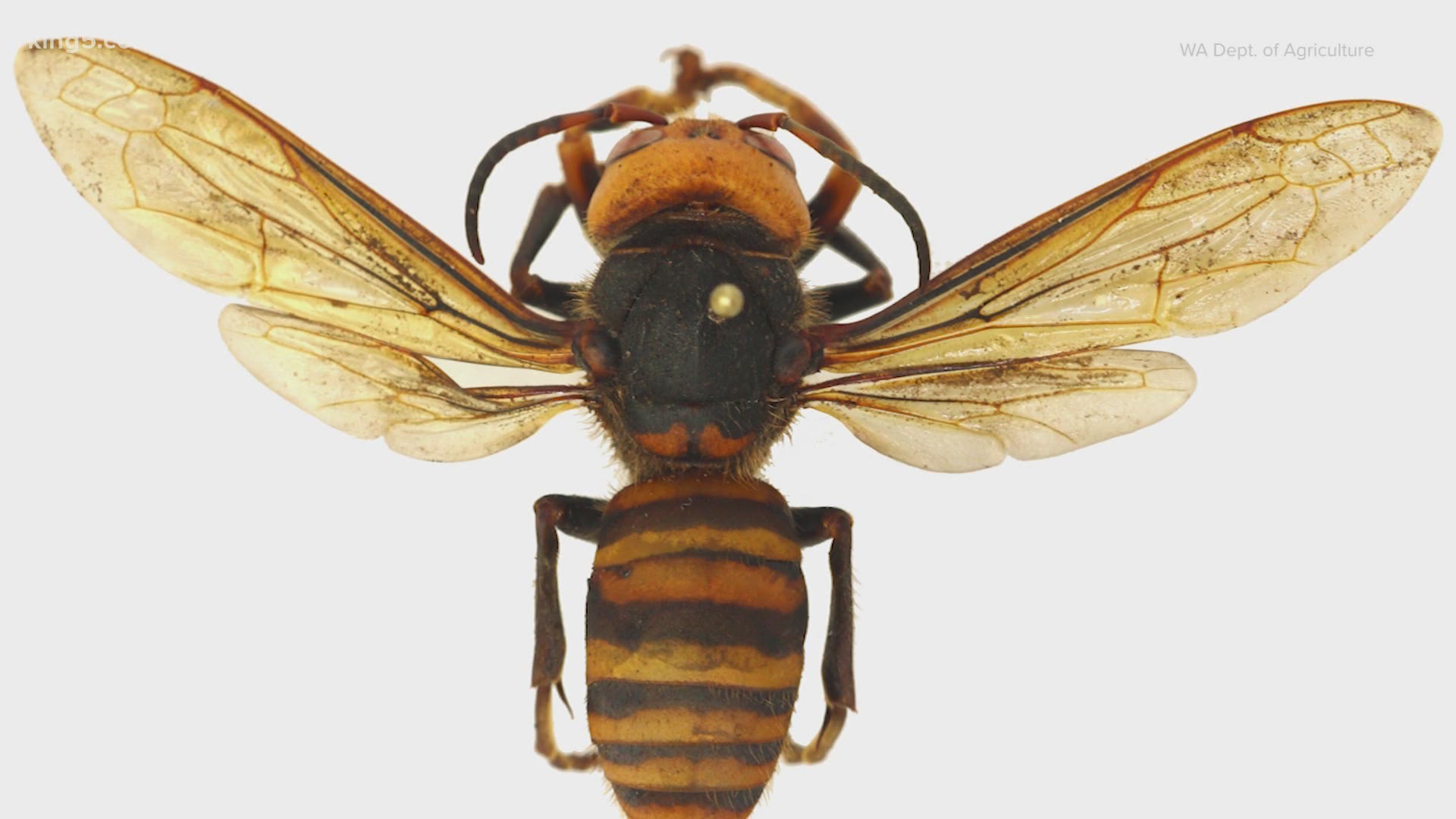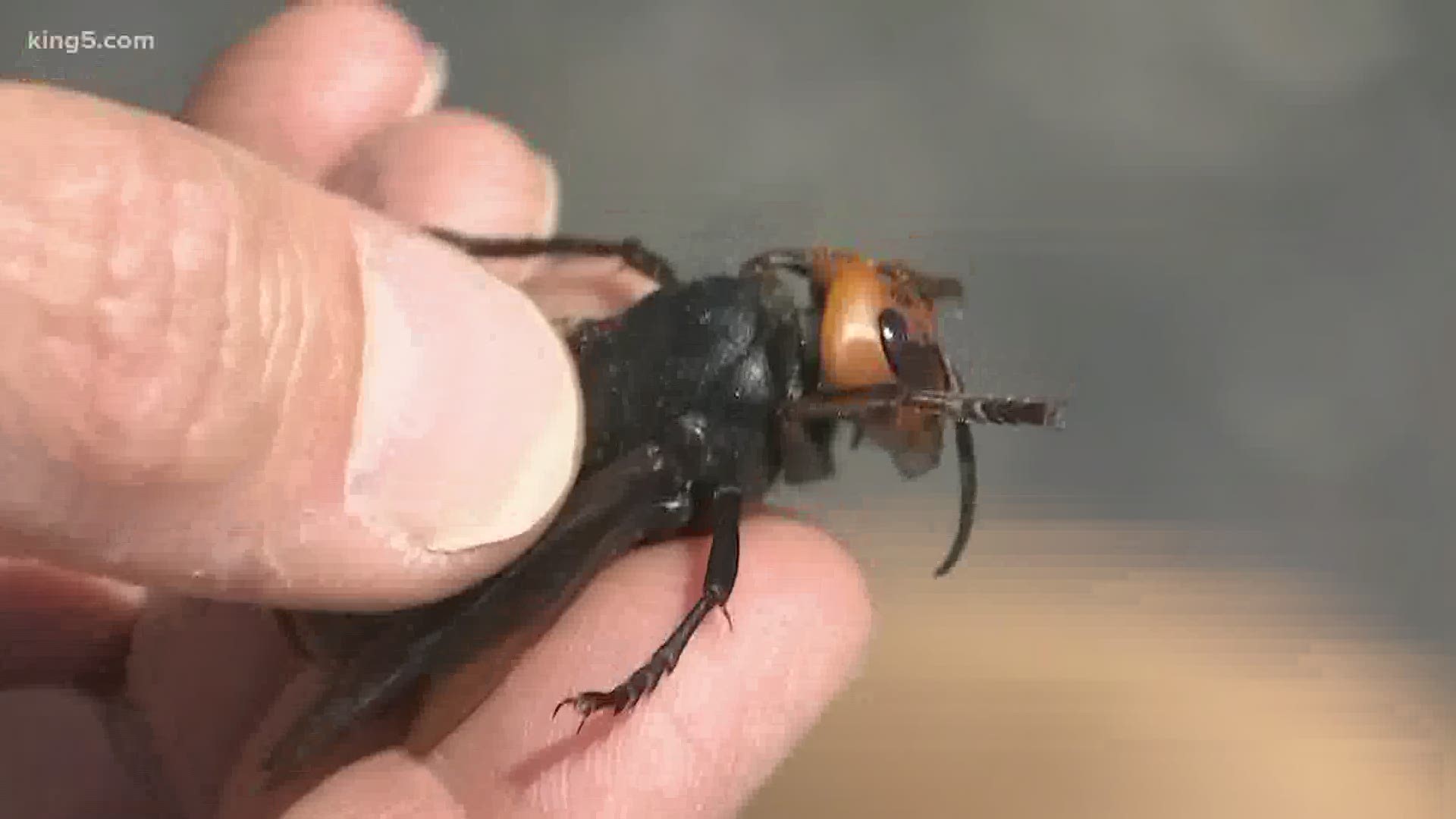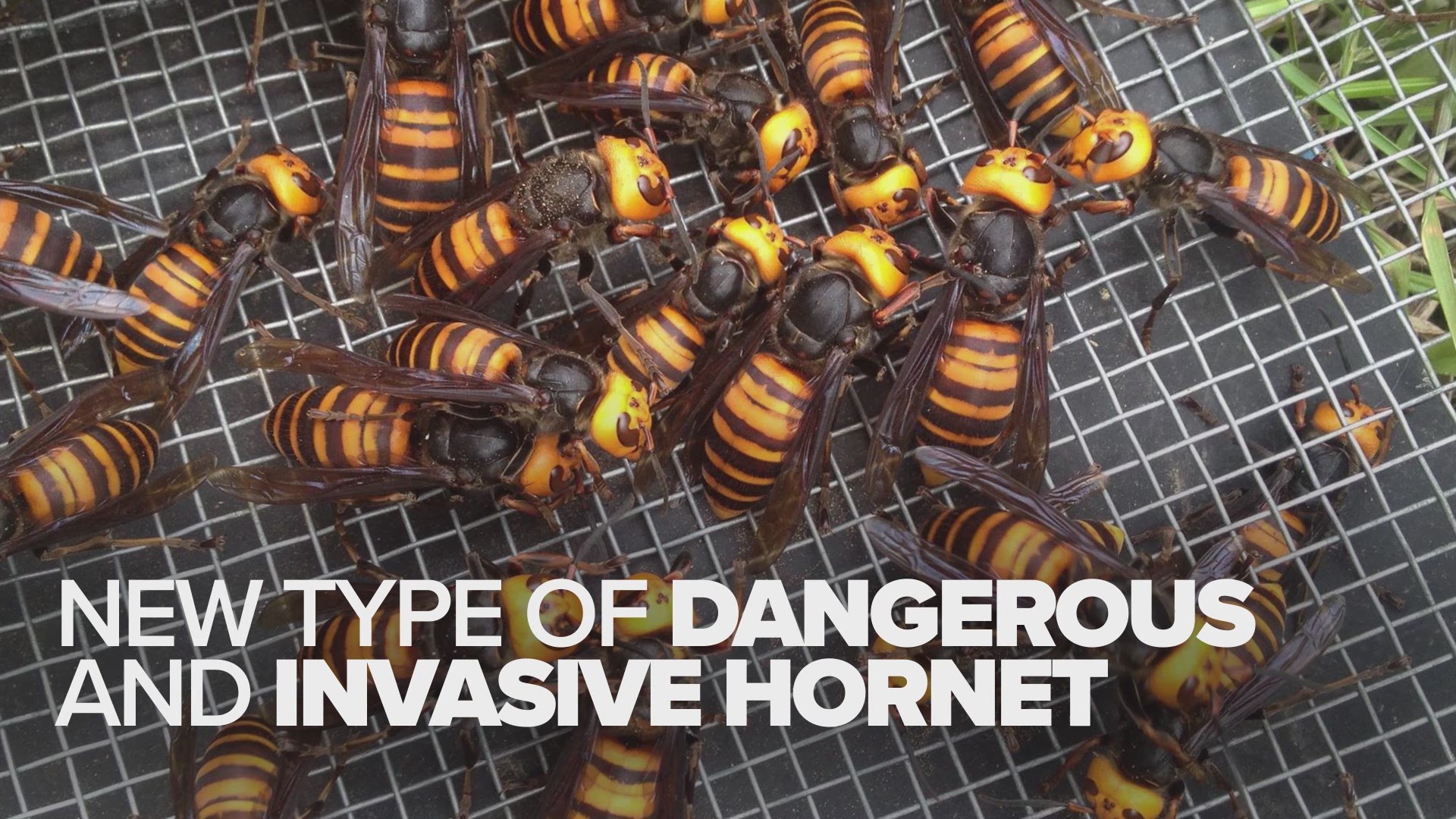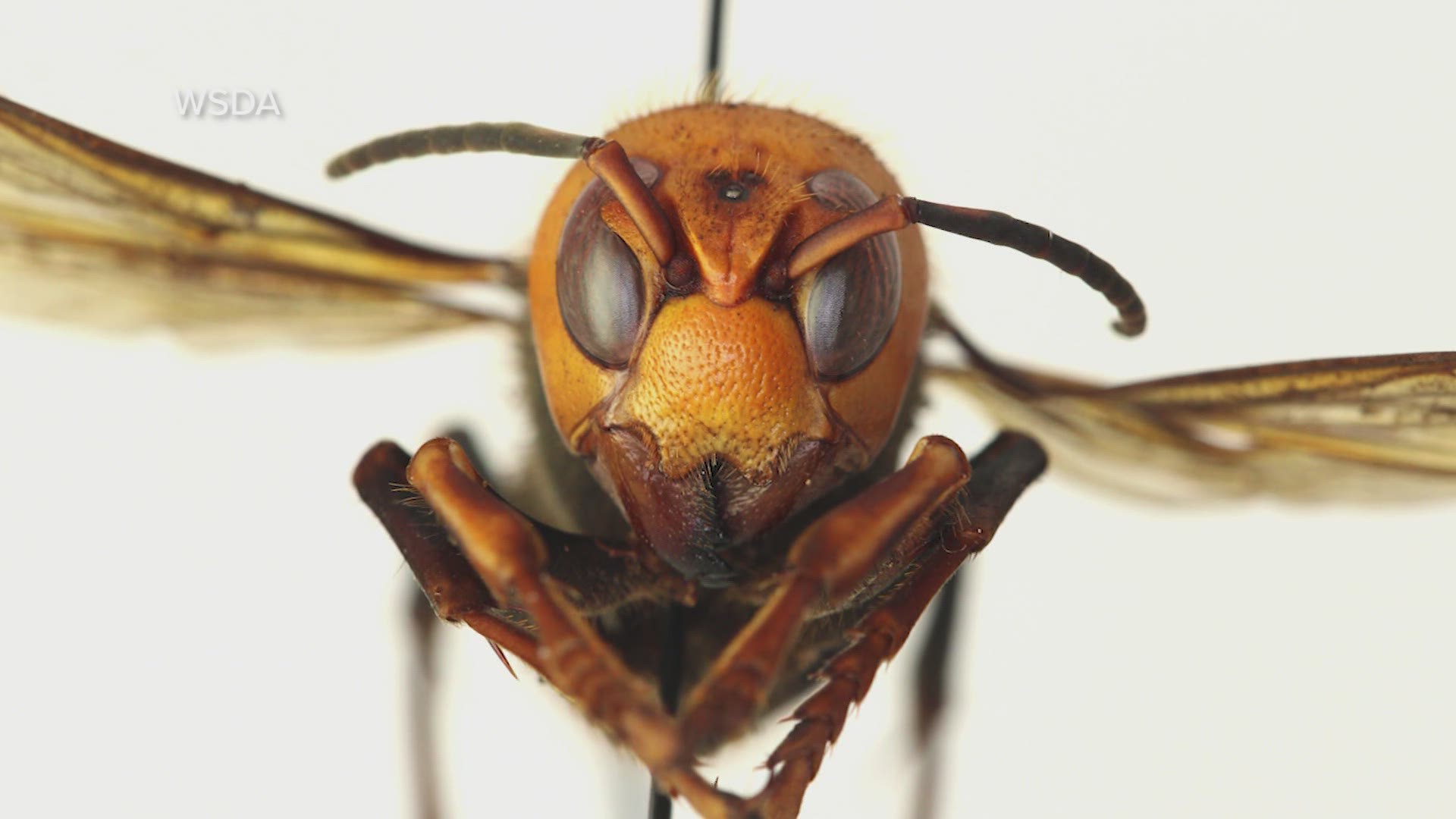Fake signs about Asian giant hornet sightings were left at several Washington trails over Memorial Day Weekend. The Washington State Department of Agriculture said the signs were not issued by any state agency, and most of the information was false.
The Department of Agriculture said their agency received several reports about the warning signs from concerned hikers. At least one was spotted on Tiger Mountain. The fake signs claimed hornets were nesting in the area, and listed an incorrect number to report sightings, among other errors.
The agency credits alert hikers for spotting the signs, which led to their removal. The DNR said it is not investigating the incident since the signs were removed.
"People have suggested on social media that maybe they posted them as, you know, a way to keep people away from the trails," said Karla Salp with the Dept. of Agriculture. "My personal thought is it was probably somebody who was well-intentioned, but mis-informed and was trying to do some good, but it was not helpful actually."
The signs were taken down, and DNR says it's not investigating. Agriculture officials are concerned by the spread of misinformation though: they have reports have people killing bees, mistaking them for the now-infamous hornets - a practice they hope does not persist.
They ask if you spot one - safely take a picture to submit if possible, and leave it alone.
Find official information from the state here: agr.wa.gov/hornets.
A dead Asian giant hornet was recovered near Blaine, WA in late 2019 near the Canadian border. A live one was also captured by WSU not far away, the Dept. of Agriculture said.
In November, a beekeeper in Whatcom County says he discovered a strong bee colony had been decimated. He suspects the Asian giant hornet is to blame, but that has not been officially confirmed since hornets weren't found at the site.
No new hornets have been found in Washington since the initial discoveries, Agriculture said, but one was found recently in Langley, British Columbia.
"On May 15th, a resident stepped on an Asian giant hornet on the ground," said Salp. "...so that's also several miles north of the Blaine catches that we had last year."
Testing will be done to determine if it was a queen, and if it had mated or not, Agriculture said. DNA testing will also help determine the region the hornet came from.
The Asian giant hornet is about two inches in length. Scientists say just a handful of the massive insects can destroy thousands of bees in an otherwise healthy hive.
This dangerous and invasive hornet can sting repeatedly, have potent venom, and has gained a nickname that not all scientists like: "murder hornets." The name comes from when they enter a 'slaughter phase,' killing and decapitating bees.
"The 'murder hornet' moniker has created a lot of fear and hysteria. It's probably overblown. I mean the human health risks are real. If you are one of the people who is unlucky enough to stumble into a nest and get stung that is definitely going to hurt. If you are allergic, you could go into shock. And every year, there are people in Japan that are hospitalized for multiple stings. Some even die," said state entomologist Dr. Chris Looney.
Experts say despite its homicidal nickname and shocking headlines, the Asian giant hornet's presence in Washington is no reason to panic. But - the world's largest hornets could be a threat to bees if they become established in America.
Dept. of Agriculture is still checking traps - but expects trapping to be more productive in July- as the race to eradicate the invasive species continues.






